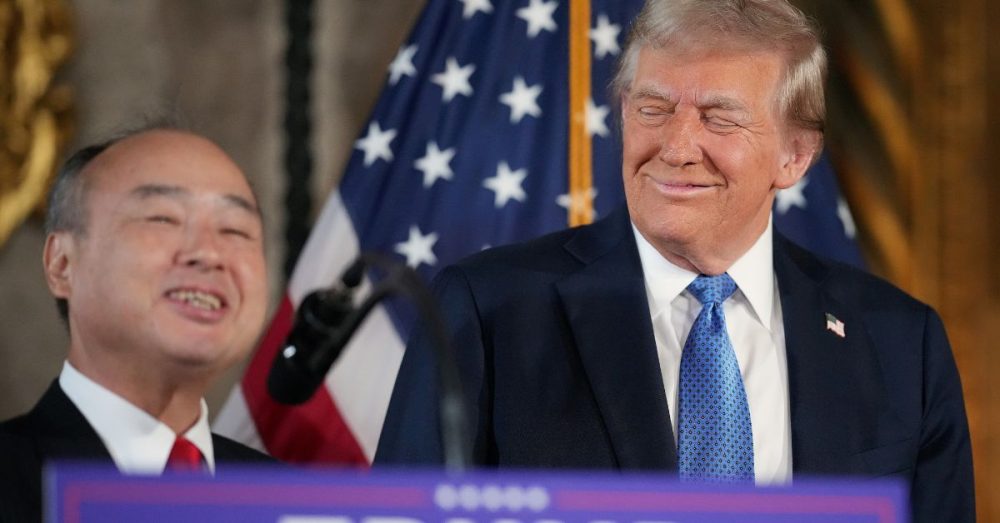Japanese tech mogul Masayoshi Son, CEO of SoftBank, recently made a headline-grabbing announcement while standing beside President-elect Donald Trump. At a press event held at Trump’s Mar-a-Lago estate in Palm Beach, Florida, Son pledged to invest a staggering $100 billion in the United States over the next four years. The investment would be used to create 100,000 new jobs, showcasing Son’s belief in the potential of American businesses, particularly in the realm of technology. This ambitious promise has raised many questions, especially considering SoftBank’s recent history and the lack of specifics provided about the investment plan.
Son’s commitment is seen by some as a bold move to align with the U.S. government’s pro-business stance under Trump. The two men shared a lighthearted moment during the press conference, where Trump playfully urged Son to increase the pledge. Son’s laughter and response suggest a jovial rapport, but the seriousness of the investment remains unclear. While Son is known for his high-profile ventures, including in artificial intelligence, his company’s financial health and past missteps, such as a failed investment in WeWork, have led some to question the likelihood of his $100 billion pledge coming to fruition.
Despite his enthusiasm, Son’s investment history has been a mixed bag, which leaves room for skepticism. Earlier this year, Bloomberg reported that SoftBank was planning a major $100 billion investment in semiconductor technology. However, that plan seems far from realized given that SoftBank’s cash reserves were only about $30 billion earlier this year. This discrepancy has led many to wonder how Son plans to finance such a massive undertaking, especially given his company’s past challenges. As much as Son might believe in the future of AI, his ability to meet such grand promises remains uncertain.
The focus on artificial intelligence, particularly AI hardware and semiconductors, seems to be Son’s primary motivation behind this investment. In recent years, the tech sector has been abuzz with the potential of AI, and Son is keen to capitalize on these developments. However, many are cautious about the overpromises that often accompany these ambitious announcements, as past ventures by SoftBank have shown. While Son is undoubtedly a visionary in the tech world, his track record with previous investments raises doubts about the sustainability of his new ventures.
Moreover, Son’s commitment to invest $100 billion in the U.S. is not the first of its kind. Throughout Trump’s first term, several international companies and billionaires made similar pledges to invest in the American economy. While these promises were often accompanied by media fanfare, the actual outcomes were less impressive. For instance, some companies struggled to meet their targets or abandoned their plans altogether. With this in mind, it is unclear whether Son’s grand pledge will be another instance of big talk with little follow-through.
What stands out most about Son’s announcement is the lack of concrete details. While he made the significant promise to invest in AI and job creation, there were few specifics about how the funds would be allocated or which companies would benefit from the investment. The ambiguity surrounding the plan raises questions about the feasibility of such an ambitious venture. While the announcement may have been intended to boost confidence in the U.S. economy, it leaves many wondering whether it will lead to tangible results or become another overhyped declaration.
As time progresses, the tech world will be watching closely to see if Son can deliver on his $100 billion promise. With his past investments and the challenges of SoftBank’s financial situation, it remains to be seen whether this pledge will help change the trajectory of the American economy or falter like other promises before it. One thing is certain: the stakes are high, and only time will tell if this bold move is truly the game-changer that Son envisions.


